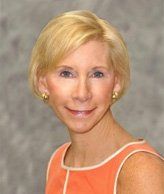I’m Tired! Is There a Pill for That?
When someone states they are “tired,” it prompts follow-up questions regarding activity, sleep, diet, and stress, among other things-just as a complaint of pain leads to where, what kind, and how long.
Rebecca Bechhold, MD

It is probably the most common complaint by anyone-oncology patient or person you stop in the street. Virtually every disease in the Merck Manual starts with “presenting complaints include fatigue...” Which is why when a diagnosis takes awhile to make, people often criticize the physician saying, “She told her she was tired! It says in all the books that her disease causes fatigue! How could they have missed such an obvious diagnosis?”
When someone states they are “tired,” it prompts follow-up questions regarding activity, sleep, diet, and stress, among other things-just as a complaint of pain leads to where, what kind, how long, etc.
The simple answer to “Can’t you do something about that?” is often no, because there is no pathologic etiology; much of fatigue is lifestyle. But the approach to evaluation and recommendations is a sensitive and important part of supportive oncology.
The American Society of Clinical Oncology published a clinical guideline paper in the Journal of Clinical Oncology on June 10. This is a comprehensive document, and I appreciate the effort and thought that went into it. In my mind, it states the obvious and breaks it into a million parts, but maybe that is what guidelines do. Maybe I am just insulted that they are telling me to make sure I evaluate the patient every visit, including before and after treatment, for fatigue. And what does it mean to “screen for fatigue annually?” Haven’t I asked about it every visit? It is reminiscent of exploding screens on the EMR, giving me more and more boxes to click so someone can mine the data.
For me, evaluation of fatigue is more along the lines of, “So, are you not able to do the things you need or want to do? Do you feel short of breath with it? When do you feel this way? Are you getting enough sleep? Can you perform your job? Are you missing out on things because you are tired? Are you under stress? How are things with the parents/job/kids/spouse? How is your appetite? Are you exercising?” That last one is usually a big NO, but we will get to that later. Sometimes they don’t sleep the night before a follow-up appointment because they worry about recurrence, but once they get an all clear, they pep up and go out the door smiling.
I will estimate that 80% of the time, when my patients say they are tired, they immediately follow that with what they think the cause of it is, and frequently they say what they think will alleviate it. That can lead to a productive interaction, which in itself can provide assurance and support to them.
We each do a mental checklist, particularly with patients at high risk for recurrence or adverse side effects, to make certain that the cause of fatigue is not recurrent or comorbid disease; anemia; or cardiac, pulmonary, or metabolic. We are pretty good at that. But read the guidelines closely.
“Physical activity can reduce cancer-related fatigue in post-treatment survivors.” A significant portion of the recommendations are aerobic exercise; strength training; and mind-body interventions like yoga, meditation, and massage, among others.
Pharmacologics are not shown to help. For example, an article appeared in the Journal of Clinical Oncology that shows the lack of benefit with modafinil for fatigue in lung cancer patients.
Close on the heels of pain and nausea, fatigue is a ubiquitous problem for our patients in treatment, as well as for survivors post-treatment. I firmly believe we all “screen” for it in our own manner and are sensitive to patients’ fears about what it means to them if they experience fatigue. Their biggest concern is recurrent disease, but we can do more than reassure them that they are still NED. Honest, personal questioning and listening to the answers will usually lead to at least one intervention for the patient. Maybe it is stress management, sleep adjustment, diet, or exercise. It is likely not a prescription. Empower the patient to manage their fatigue. It will improve their QoL-quality and quantity.